In the News
From time to time, the Society and its Fellows and Members are mentioned, or are published, in the media, or in other sources or outlets. This page summarises such mentions, providing links either to the original sources, or to news items that include links to original sources. For readership transparency, the following annotations are used:
- Society Position: indicating that the contribution builds on a formally adopted position of the Society, which is referenced
- Opinion: indicating that the article is solely the opinion of the author, irrespective of the existence of, or alignment with, any formally adopted position of the Society
- Unclassified: indicating that the reference is informational in its nature.
2020
- Andrea Morello, UNSW launches new degree in quantum engineering, ABC Science Show, 15 August 2020
- Jake Olivier (Opinion), quoted in Heartbroken mother calls on drivers to drop ‘she'll be right’ attitude, Sydney Morning Herald, 6 August 2020
- Len Fisher (Opinion), Scientists struggle with their message, ABC Science Show, 24 July 2020
- Peter Shergold, quoted in Call for ‘learner profile’ of students to end dominance of ATAR, Sydney Morning Herald, 24 July 2020
- Herbert Huppert, Society Fellow awarded the 2020 London Royal Society Royal Medal, and Royal Society (News), 4 August 2020
- Barney Glover (Opinion), Powerhouse Parramatta will be bigger and better than before, Sydney Morning Herald, 30 June 2020
- Ian Sloan (Society Position), Premier's zeal for museum's move must be explained, Sydney Morning Herald (President's Letter to the Editor), 29 June 2020
- Thomas Keneally (Opinion), Cultural cringe + market economics = lower education, Sydney Morning Herald, 26 June 2020
- Lord Robert May, Vale the professor of everything, ABC Science Show, 13 June 2020
- Belinda Hutchinson, Stephen Garton, Roy MacLeod, Queen's Birthday Honours 2020, 8 June 2020
- Gary Froyland, Katrina Joliffe, Ian Paulsen, Professors Froyland, Joliffe and Paulsen, RSN Fellows, elected as Australian Academy of Science Fellows, 30 May 2020
- John Shine, Society Fellow awarded a prestigious international fellowship, 15 May 2020
- Mohammed Choucair, Quantum computing startup led by Royal Society Fellow joins the IBM Q Network, 5 May 2020
- Lord Robert May, Death of Lord Robert May of Oxford-Distinguished Fellow of the Royal Society of NSW, 30 April 2020
- Maria Kavallaris, RSNSW Fellow named NSW Woman of the Year 2020, 7 March 2020
- Her Excellency The Honourable Margaret Beazley, Australia Day Honours 2020, 26 January 2020
2019
- Rebecca Johnson, RSNSW Fellow appointed Chief Scientist of the Smithsonian National Museum of Natural History, 18 December 2019
- Rose Amal, Nalini Joshi, Society Fellows awarded NSW Premier's Science Prizes, 31 October 2019
- Elizabeth New, Society Fellow wins 2019 Malcolm McIntosh Prize for Physical Scientist of the Year, 19 October 2019
- Leo Radom, Katherine Belov, Michelle Simmons, Keith Suter, Queen’s Birthday honours for RSNSW Fellows, 10 June 2019
- Jillian Broadbent, Leonard Fisheer, Barney Glover, Adrian Hibberd, Robert Thomas, FRSNs in 2019 Australia Day honours, 29 January 2019
- Mark Compton, FRSN to be Lord Prior of St John International, 10 January 2019
Uluru Statement of the Heart: Statement of Support from the Royal Society of NSW
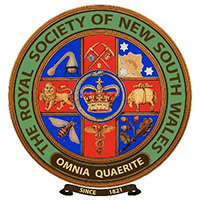
In January 2018, the President of the Royal Society of NSW, Emeritus Professor Brynn Hibbert AM FRSN, signed the Uluru Statement from the Heart declaration on behalf of the Royal Society of NSW. The Society's Statement of Support included the following paragraph:
“Our mandate, as the Royal Society of NSW, Australia's oldest peak scholarly body, is the disciplined concern for excellence in knowledge across the natural and social worlds. From this base, we reaffirm the significance of our indigenous forebears in the strength and contribution of their own culture and knowledge to Australia as a whole. Their exclusion from government endorsing and paying attention to the collective ‘Uluru Voice’ is both a reprehensible return to human rights violations of the past, as well as a loss for all Australians from the indigenous culture, knowledge, and voice from which we can all learn, both for now and for our sustainable future.”
On 27 May 2018, the Society made a submission (Submission 65) to the Parliament of Australia’s Joint Select Committee on Constitutional Recognition Relating to Aboriginal and Torres Strait Islander Peoples that included this Statement.
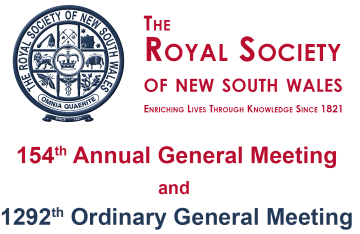
Date: 7 April 2021, 6.00pm
Venue: Zoom Webinar
This notice provides information about the:
Annual General Meeting
Rule 4(c) of the Society's Rules requires that an Annual General Meeting (AGM) must be held in April of each year.
Business of the Annual General Meeting
The formal business of the Annual General Meeting, including the election of Council Members, will be conducted via an electronic ballot, in accordance with Rule 18.
Members, Fellows and Distinguished Fellows, who are financial in 2021, will receive an email from the Society's Returning Officer, via the electronic balloting company, Election Buddy. This email will include a unique ballot link that provides a random, secret access key for each voter. Voter anonymity is assured by ballot settings which ensure that voter choices cannot be linked to any voter.
The ballot will run from 18 March 12.00pm AEDT to 6 April 12.00pm AEST and will address:
- Procedural Business:
- Confirmation of the Minutes of the 153rd Annual General Meeting
- Confirmation that the Annual Report of Council and the Financial Statements for 2020 be received (Link to be provided)
- Confirmation of the proposed Auditors for 2021
- Election of Office-bearers and Council members, namely the:
- President — from a field of two (2) candidates
- Vice-President — from a field of three (3) candidates
- Eight (8) Councillors — from a field of fourteen (14) candidates.
Please note that for each of the positions of Secretary, Treasurer, Librarian, and Webmaster, only a single nomination was received. Accordingly, these Office-bearers will be declared elected at the AGM without the need for a ballot.
The results of the ballot will be announced by the Returning Officer at the AGM on 7 April 2020 and will be posted on the website on the following day.
The Ordinary General Meeting will commence immediately following the conclusion of the Annual General Meeting.
Relevant Documents
The Agenda for this meeting and Minutes of the previous AGM will be available on the Meetings page of this website.
The Annual Report from Council and Financial Statements for 2020 will be available on the Governance page.
It is suggested that Members and Fellows read these documents in advance of the commencement of the ballot.
Election of Office-Bearers and Ordinary Members of Council
Listed below are the nominations for the incoming Council received by the Secretary by 5.00pm AEDT on Friday, 5 March 2021.
For the Council Election, there are candidates who are standing for more than one position. In such circumstances, Rule 16(e) states that when a person stands for election in several offices (President, Vice-President, Secretary, Treasurer, Librarian, Webmaster, Councillor), that person shall be deemed elected to the first office considered for election in the order specified, if successful, and shall by deemed ineligible for subsequent offices.
In all cases, candidates have been invited to provide an optional statement outlining how their expertise and experience fits them for these roles and will benefit the Society. These statements are available through the links below and also are provided as information on the electronic ballot form.
Ordinary General Meeting
The 1292nd Ordinary General Meeting will follow the Annual General Meeting and includes a live, video-streamed Open Lecture.
The Agenda for this meeting and Minutes of the previous OGM can be found on the Meetings page of this website.
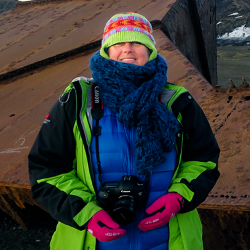 “Antarctica, this ain’t no mirage:
“Antarctica, this ain’t no mirage:
the value of art in disseminating
scientific information”
Lea Kannar-Lichtenberger
Contemporary Artist
In this talk Lea Kannar-Lichtenberger will explore just one of the islands she has investigated and, through her art, has raised awareness about the impact that our contemporary society is having on these often-idealised environments. Through the use of her time-based installations, photography and sculptures, along with her paintings and drawings, Lea works to make science more accessible to the community at large.
In January 2017 Lea travelled to Antarctica. This journey was unusual, not just because it was with a not-for-profit organisation, no room service or cabin attendants, but also as it was in many ways in the footsteps of the adventurer explorer. Her journey here resulted in artworks and exhibitions that have been seen across Australia in universities and art galleries, with her goal to bring the plight of the remote into the lives of the everyday person.
Lea Kannar-Lichtenberger is an Australian contemporary artist who disseminates her research and artistic vision, as an ‘artist at large’ by presenting her response and advocacy for environmental issues. Her investigations into evolution, contemporary society, and the impact of tourism on island environments has seen Lea do onsite examinations through immersive residencies or eco-tourism inquiries in; the South Shetland Islands specifically Deception Island (Antarctica) 2017, the Faroe Islands (The North Sea) 2015, the Galapagos Islands (Ecuador) 2014, Lord Howe Island (NSW Australia) 2014 & 2015 and in 2021 an Artist at Sea residency with the Schmidt Ocean Institute. Lea creates artworks and installations that examine a window into the impact of the Anthropocene and contemporary consumerism on the viewed utopian destination. Lea has disseminated this research and her unique perspective through lectures, paper presentations and peer reviewed journals.
Lea Kannar-Lichtenberger has exhibited widely including solo exhibitions at Edith Cowan University Western Australia, and Griffith University, Queensland, and group exhibitions including Sculpture by the Sea (Sydney and Cottesloe), the Adelaide Perry Prize for Drawing and the Waterhouse Natural Science Art Prize. Internationally her work has been shown at the Venice Summer Academy, Stunning Edge Exhibition Taiwan, the New York Hall of Science, Galway International Arts Festival Ireland, the SVA (the School of Visual Arts) at the Flatiron Building in Manhattan and the NYABF at the MOMA annexe PS1, New York.
The Society exists to advance knowledge and to communicate it in the Society’s publications and other media. The Society encourages researchers and leaders to present the outcomes of their investigations at the meetings, forums, conferences and other events organised by the Society. It provides a forum for the expression and transmission of ideas.
The Society upholds the principles of liberal democracy and encourages a non-discriminatory discourse and the free exchange of ideas that respect religious, political, and cultural freedoms, seeing these as fundamental to Australian intellectual life.
Values
The Society subscribes to the following ideals:
- Commitment to advancing the best interests of society: advancing knowledge and understanding for a more just, sustainable, and secure society.
- A questioning spirit: supporting the principles of freedom of thought and speech, and the scientific method of inquiry.
- Diverse and inclusive engagement: embracing and including individual differences and contributions to our collective success and social
engagement. - Boldness and innovation: acting with courage to address issues of the day, take calculated risks, and to innovate as modern technologies
expand ways to communicate. - Good governance: organisational practices that are ethical, expert, inclusive, respectful, courteous, consultative, participatory, accountable, and sustainable.
Diversity and Inclusion Policy
In line with the Society's values, and in support of these principles, the Council, in January 2020, adopted its initial Diversity and Inclusion Policy. The policy has been framed with the recognition that the Society will become a more effective public intellectual voice by comprehensively embracing diversity and inclusion in all of its activities. The policy and its implementation are considered annually by the Council annually, updated as required, with implementation progress being reported to the membership twice a year.
Recent Position Statements
From time to time, consistent with its role as an independent, non-political body, the Royal Society of NSW issues position statements and media releases on matters of public interest and concern.
The Bushfire Emergency and Climate Change: Statement from the RSNSW President (29 January 2020)
Uluru Statement of the Heart: Statement of Support from the Royal Society of NSW (January 2018)
Recent Media Releases
Ideas@theHouse: May 2020
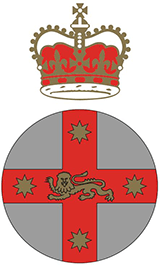 Ideas@theHouse
Ideas@theHouse
presented by
Her Excellency the Honourable
Margaret Beazley AC QC, Governor of NSW
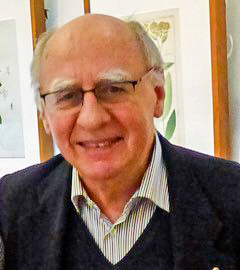
“Ten: the Mapping of Colonial Australia”
Emeritus Professor Robert Clancy AM FRSN
The University of Newcastle
Date: Thursday, 21 May 2020, 7.00pm
Venue: Zoom webinar
About the talk: Maps are documents of history: they tell a story of place in context. The printed map has been available for 500 years—a remarkable coincidence with the story of Terra Australis, the mapping of Australia, and of the transition from mythology to empiricism as Western science took centre stage. The human history of New South Wales pre-dates all this by at least 60,000 years, engraved in rock, and embedded in a social history looking at the stars.
The intent of this talk is to highlight a very small part of the cartographic story, namely that of the colonial period from 1788 to 1901. The story will be told through a cartographic record of change events, covering a century where a “gaol of 1000 souls would become an independent nation with the highest standard of living in the world”, and told in the context of the colonial governors of the day — ten from the date of colonisation in 1788 through to responsible government in 1855, and ten from 1855 up to Australian Federation in 1901.
Which governors do you think made the most significant differences during this transition?
About the speaker: Emeritus Professor Robert Clancy was the Foundation Professor of Pathology in the University of Newcastle Medical School and a clinical immunologist who undertook research in mucosal immunology and the development of mechanisms to enhance mucosal resistance and control mucosal inflammation. He has a strong involvement in the biotechnology of natural products that maximise mucosal immune competence, protecting against infection, and he maintains a clinic in gastroenterology focused on inflammatory bowel disease.
Professor Clancy has strong, longstanding interests in histocartography relating to the discovery and development of Terra Australis, and the history of science and medicine, with a focus on epidemics. He has written five books on histocartography and is a regular speaker on maps—curating exhibitions and writing numerous articles on this topic. Together with his wife, Christine, he run tours in Europe on the history of medicine and pharmacy, and the history of science.
About Ideas@theHouse: In late 2019, Her Excellency the Honourable Margaret Beazley AC QC, Governor of New South Wales and Patron of the Royal Society of NSW, invited representatives of the Society to discuss how the Governor might open Government House to a series of public events based on important and/or influential ideas. Her Excellency’s proposal was that the Royal Society of NSW and other organisations might devise a series of lectures, to be held at Government House, and known as Ideas@theHouse on topics of our choice for an invited audience of our Members and Fellows, together with others to be invited by Her Excellency. The lecture would be followed by a reception hosted by Her Excellency. In January 2020, the Governor accepted three topics proposed by the Society. Since then the social restrictions of COVID-19 have intervened, with the face-to-face presentation and reception having to be replaced by an online webinar followed by a live question and answer session. We look forward to a future when we can enjoy the Governor's hospitality at the House.

